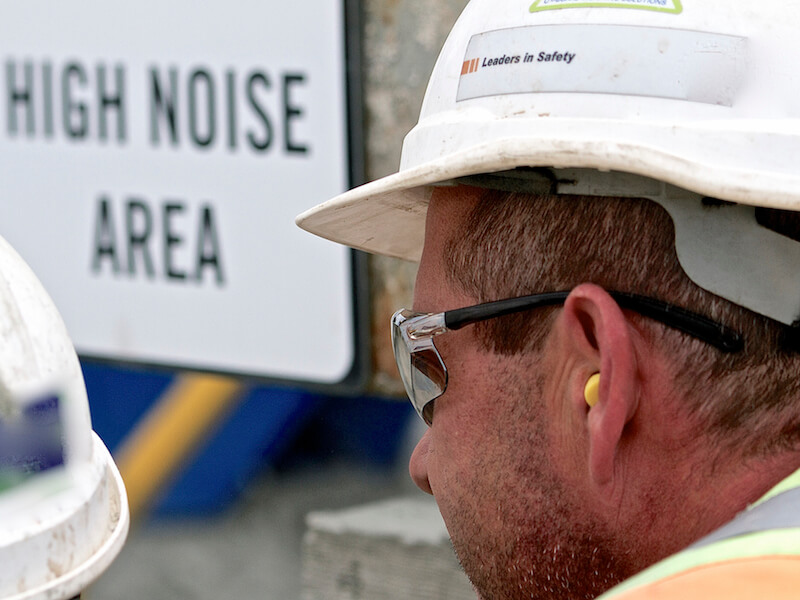
Your hearing can be damaged by a loud workplace and it can also impact your focus. Even modest noise, when experienced for many hours a day, can begin to undermine the health of your hearing. That’s why it’s really smart to begin asking questions like, “what level of hearing protection should I use”?
Most of us probably didn’t even know there were numerous levels of hearing protection. But when you take some time to consider it, it makes sense. A jet engine mechanic is going to require a different level of protection than a truck driver.
Hearing Damage Levels
The fact that 85dB of sound can begin to harm your ears is a standard rule of thumb. We’re not really used to thinking about sound in terms of decibels (even though that’s how we measure sound – it’s just not a figure we’re used to putting into context).
Eighty-five decibels is about how loud city traffic is when you’re sitting inside your car. No biggie, right? Wrong, it’s a big deal. At least, it’s a biggie after eight hours. Because it’s not just the loudness of the noise that you need to pay attention to, it’s how long you’re exposed.
Typical Danger Zones
If you’re exposed to 85 dB of noise for eight hours a day or more, you should probably think about using hearing protection. But that’s not the only threshold you need to be aware of. If you’re exposed to:
- 90 dB (e.g., lawnmower): Anything over four hours is considered damaging to your hearing.
- 100 dB (e.g., power tools): Your ears will be damaged when exposed to this level of noise for 1 hour a day.
- 110 dB (e.g., leaf blower): Anything over fifteen minutes is considered harmful to your hearing.
- 120 dB (e.g., rock concert): If your exposed to this level of noise for any amount of time, your hearing can be harmed.
- 140 dB (e.g., jet engine): Any exposure can lead to damage and could even cause immediate pain.
You’ll want the hearing protection you choose to be sufficient to bring the volume below that 85 dB level, especially if you’re exposed to those sounds for any duration.
Find a Comfortable Fit
The effectiveness of hearing protection is measured by something called a Noise Reduction Rate, or NRR. The outside world will be progressively quieter the higher the NRR.
It’s really important that you choose hearing protection with a high enough NRR to keep you safe (and your workplace will usually make recommendations about what level might be appropriate).
Comfort is also an essential component to take into consideration. It’s really important that your hearing protection is comfortable to wear if you want to keep your ears safe. This is because you’re not as likely to actually use your hearing protection if it’s uncomfortable.
What Are my Hearing Protection Choices?
You’ve got three basic options to choose from:
- In-ear earplugs
- Earplugs that sit just outside of the ear canal.
- Earmuffs.
There are benefits and drawbacks to each kind of protection, but most of your hearing protection decision will depend upon personal preference. For some individuals, earplugs are uncomfortable, so they’d be better served with earmuffs. For other individuals, the ability to put earplugs in and leave them in is a better option (obviously, you won’t want to forget them for too long… you should remove them at the end of your workday. And clean them).
Find a Constant Level of Hearing Protection
Any laps in your hearing protection can lead to damage, so comfort is a major factor. If you remove your earmuffs for ten minutes because they’re heavy and uncomfortable, your hearing can suffer over the long run. So the most crucial decision you can make is to pick hearing protection that you’re comfortable leaving in place during your workday.
You’re ears will stay healthier and happier if you choose the right degree of hearing protection for your situation.
Call Today to Set Up an Appointment
